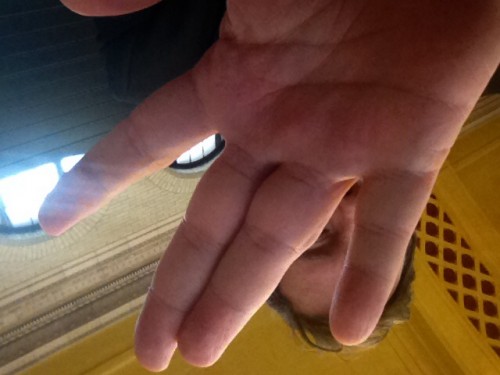Did you know that Skepticon is next week? Next week! My talk isn’t done! I have vowed to finish it this weekend, though: they’ve got me scheduled to talk on the first night, probably because they know that I have a tendency to fuss over these things and would be tweaking it every day before I go on.
Do you know what else is almost, but not quite done? Fundraising! They’re within a few thousand dollars of reaching their goal, so it’s the final push. It’s like my talk, we’re always skirting the edge of getting it done in time. But I’ve already promised to get that talk done this weekend, so it would be nice if they could get their fundraising done then, too.
If you need additional incentive, consider this: this is the conference the haters hate the most. I’ve already got some wackaloons I’ve never met and who have never attended a conference I’ve gone to and in particular have never had any plans to attend this one ranting and raving about a boycott of the con, and a walkout of my session (but then, these are the same kooks who propose to do that every time I give a talk somewhere, and the only people who’ve walked out so far seem to be invisible). This is the convention that has Rebecca Watson, Amanda Marcotte, Greta Christina, Debbie Goddard and all kinds of uppity women stirring up trouble.
Subvert the dominant paradigm! Support the skeptical conference that isn’t run by asshats!




